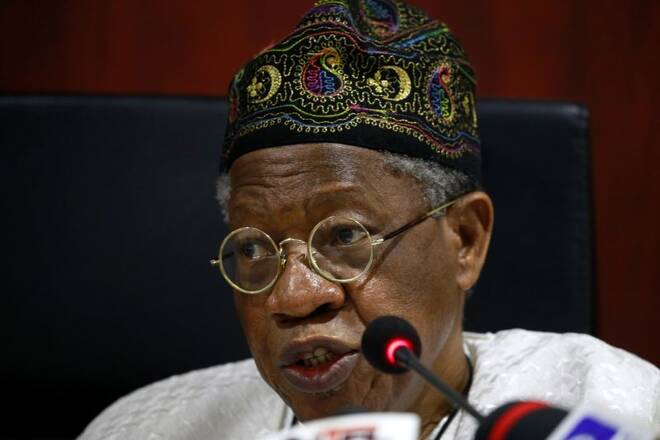Advertisement
Advertisement
Nigeria asks Google to block banned groups from YouTube
By:
ABUJA (Reuters) - Nigeria asked Google to block the use of YouTube channels and livestreams by banned groups and terrorist organizations in the country, Information Minister Lai Mohammed said on Thursday.
ABUJA (Reuters) – Nigeria asked Google to block the use of YouTube channels and livestreams by banned groups and terrorist organizations in the country, Information Minister Lai Mohammed said on Thursday.
Nigeria has been exploring ways to regulate social media usage in the country, Africa’s most populous. The country is home to millions of internet users and platforms like YouTube, Twitter, Facebook and Tiktok are popular.
YouTube “channels and emails containing names of banned groups and their affiliates should not be allowed on Google platforms,” Mohammed said he told Google executives in Abuja, the country’s capital.
Charles Murito, Google’s sub-Saharan African director for government affairs and public policy, in a statement said the company already has measures to address the Nigerian government’s concerns.
Those measures include a system for trained users to flag troublesome content, he added. “We share the same goals and objectives,” Murito said. “We do not want our platform to be used for ill purposes.”
The minister said the government was particularly concerned with online activities by the Indigenous People of Biafra (IPOB). The government has labeled IPOB, a group campaigning for the secession of a southeastern region of Nigeria, a “terrorist organization.”
The YouTube concerns are part of an effort by the government, the minister said, to protect Nigerian internet users from harmful effects of social media, especially ahead of a presidential election next year.
Nigeria suspended Twitter in June 2021 and blocked access to users after the social media giant removed a post from President Muhammadu Buhari threatening to punish regional secessionists.
The government lifted the Twitter ban six months later.
(Reporting by Felix Onuah and Camillus Eboh; Writing by Chijioke Ohuocha. Edited by Paulo Prada.)
About the Author
Reuterscontributor
Reuters, the news and media division of Thomson Reuters, is the world’s largest international multimedia news provider reaching more than one billion people every day. Reuters provides trusted business, financial, national, and international news to professionals via Thomson Reuters desktops, the world's media organizations, and directly to consumers at Reuters.com and via Reuters TV. Learn more about Thomson Reuters products:
Did you find this article useful?
Latest news and analysis
Advertisement
